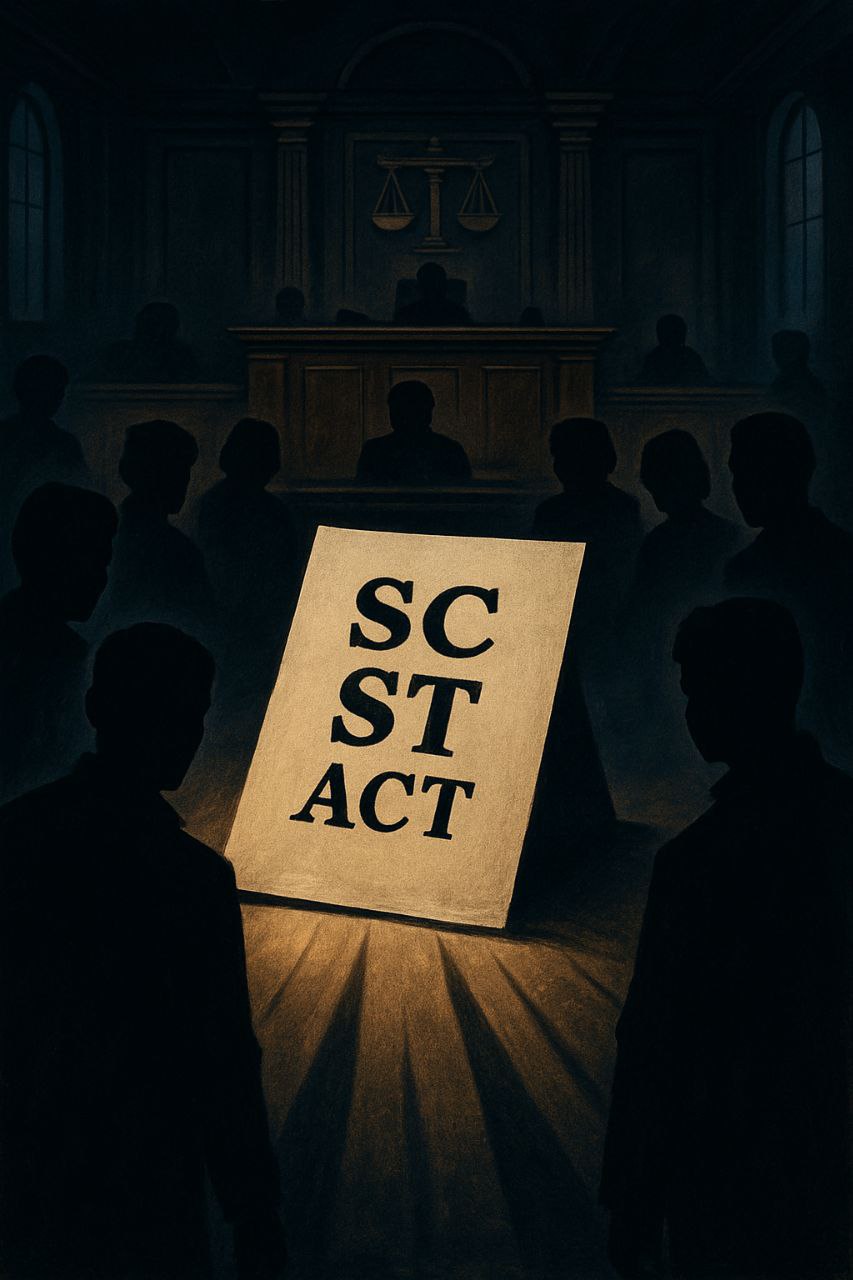In a landmark ruling that underscores growing concerns over the misuse of protective laws, a special court in Lucknow has sentenced a 29-year-old woman to 7.5 years in prison for filing a false gangrape and SC/ST atrocity case against two men to settle personal vendettas.
The case, reported by The Times of India, highlights how the Scheduled Castes and Scheduled Tribes (Prevention of Atrocities) Act, 1989—originally enacted to shield marginalized communities—has increasingly become a tool for extortion, blackmail, and score-settling unrelated to caste-based discrimination.
From Protection to Misuse
Envisioned as a robust safeguard against historical injustices, the SC/ST Act prohibits atrocities such as humiliation, assault, and denial of rights. However, its stringent provisions—no anticipatory bail and immediate arrests—have led to rampant abuse, amplified by vote-bank politics and lax oversight.
According to NCRB data (2022), Uttar Pradesh alone registered over 18,000 cases under the Act, yet the conviction rate hovers below 30%. Nationally, 20–25% of cases have been found false or exaggerated during investigations, especially in states like UP, Rajasthan, and Bihar.
The Compensation Incentive
A major driver of misuse is the provision of immediate financial relief. Under the SC/ST (Prevention of Atrocities) Rules, 1995, complainants receive ₹50,000 to several lakhs within days of an FIR—long before investigations conclude.
- Uttar Pradesh: Rape cases under the Act qualify for up to ₹6 lakhs, with ₹3 lakhs released within 15 days.
- Rajasthan: ₹5 lakhs for sexual offenses, with 50% paid immediately post-FIR.
- Bihar: Up to ₹7.5 lakhs for aggravated cases, with swift disbursement.
Critics—including legal experts and the Law Commission of India—argue this “illogical provision” incentivizes opportunists, draining public funds and undermining justice.
The Lucknow Case: A Turning Point
On June 29, 2021, a woman from Barabanki filed an FIR accusing Rajesh Dev and another man of gangrape and caste-based abuse. Rajesh was immediately arrested, while co-accused Bhupendra Kumar (BK) died during trial.
However, a probe by Circle Officer Naveena Shukla found no evidence: forensic reports were negative, witnesses contradicted her, and the complaint stemmed from a soured consensual relationship.
Special Judge Vivekanand Sharan Tripathi convicted her under IPC Sections 211 and 182, sentencing her to 7.5 years rigorous imprisonment and a fine of ₹2 lakh (half to be paid as compensation to the wronged men).
Calling it a “deliberate misuse of protective legislation”, the judge directed police to use AI tools to check prior complaints and restrict payouts until a chargesheet is filed.
Systemic Flaws and State-Sanctioned Discrimination
Convictions for false cases under the SC/ST Act are exceedingly rare. Fewer than 5% of false claimants face legal consequences, leaving most complainants unaccountable.
Meanwhile, ordinary citizens—especially from the General & OBC category—face arrests, job losses, and social stigma with no recourse. This reflects a deeper pattern of reverse discrimination, where protective laws and quotas undermine meritocracy.
The Supreme Court (2018) itself warned against misuse, calling for safeguards and preliminary inquiries to prevent “perversion of justice.”
A Ray of Hope?
The Lucknow verdict offers a rare glimmer of accountability. Yet, without systemic reforms—like deferred compensation and mandatory preliminary probes—the Act risks remaining a double-edged sword.
It must shield the vulnerable without persecuting the innocent.
For more on this case, read the full report from The Times of India here. Sources: NCRB reports, state guidelines, judicial observations.
